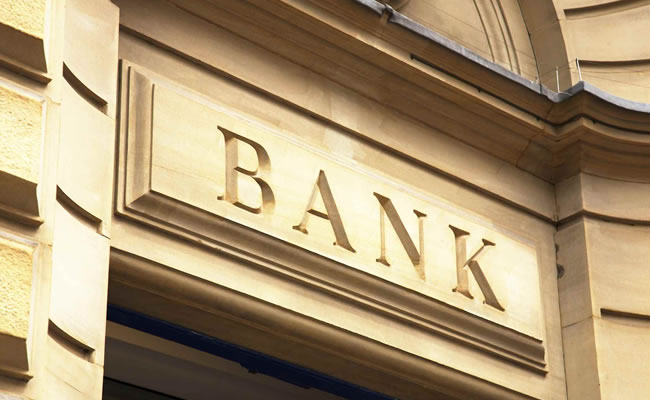EDITORIAL: Banks and the cashless policy

The cashless policy is an initiative introduced by the CBN to reduce the amount of physical cash in circulation thereby encouraging the use of electronic platforms for settlement or payment for goods and services.
The aspect of the policy earlier introduced in Lagos State from January 1, 2012, tagged (Cash-less Lagos) now became fully effective in all parts of the country on April I, 2020, On April 1, this year, the Central Bank of Nigeria (CBN) introduced a new policy on cash-based transactions which stipulates a cash handling charge on daily cash withdrawals that exceed N500,000 for Individuals and N3,000,000 for corporate bodies.
The new policy on cash-based transactions (withdrawals) in banks, aims at reducing (not eliminating) the amount of physical cash (coins and notes) circulating in the economy, and encouraging more electronic-based transactions (payments for goods, services, transfers, etc.).
The new cash policy introduced according to CBN is for several key reasons, including ‘to drive development and modernization of our payment system in line with Nigeria’s Vision 2020 goal of being amongst the top 20 economies by the year 2020. ‘
It notes that ‘an efficient and modern payment system is positively correlated with economic development and is a key enabler for economic growth.
Also, the policy will reduce the cost of banking services (including cost of credit) and drive financial inclusion by providing more efficient transaction options and greater reach.
Also, it is designed to improve the effectiveness of monetary policy in managing inflation and driving economic growth.
However, since CBN introduced the cashless policy in December 2011, it was expected that the impact would lead to the modernization of Nigerian payment system, reduction in the cost of banking services as well as reduction in high security and safety risks as well as curb bank frauds and foster transparency.
But the card system technology, especially the Automated Teller Machine (ATM) remains a nightmare with long queues and faulty operations.
In recent times, there has been an upsurge in armed robbery attacks in banks. They were attracted by the presence of huge cash in banking halls.
Internet banking frauds, epileptic power supply across the country and faulty technology compound customers’ woes.
Daily, more and more customers throng the banks premises to resolve different problems arising from epileptic service delivery.
To compound the woes, the commercial banks in commencing the full implementation of the policy since April 1, 2020, charge customers for deposits and withdrawals at rates that far exceed the limits set by the apex bank.
The extra charges are different from the already existing charges on withdrawals. Individual bank account holders are being charged a processing fee of 3% and 2%, respectively for withdrawals and lodgements exceeding N500, 000.
In the same vein, corporate account owners are required to pay a 5% fee for withdrawals exceeding N3million.
They are also required to pay a 3% processing fee for lodgements exceeding the same amount.
Checks at the CBN website revealed that from the breakdown of e-payment transactions for 2017, the use of ATM machines has remained the most patronised.
It accounts for 78.2 percent of the transactions, followed by POS terminals transactions and mobile payments with 14.3 and 4.7 percent, respectively.
CBN has stated that the policy is not targeted at impoverishing the people. It asserts that it is designed to improve development in the banking sector.
But the majority of Nigerians seem to disagree with the apex bank. Some critics of the CBN policy opine that it would further impoverish many Nigerians as virtually every bank transaction now comes with a charge.
From available information, the use of cash in carrying out transactions has remained relatively high in Nigeria.
This is due to the poor internet network connections in the use of Point-Of-Sale and bank transfers which often result in debiting customers’ accounts more than once, high transaction charges by banks, as well as security and technical setbacks like fake bank alerts, fraud and difficulty in imbibing the e-payment culture owing to illiteracy.
Other socio-cultural factors that constitute an impediment include celebrations like weddings, birthdays, and festivals where cash is freely sprayed on musicians and celebrants.
We are of the view that for CBN to achieve its aim of reducing the amount of physical cash in circulation thereby encouraging the use of electronic platforms for settlement or payment for goods and services, both the regulator (CBN) and operators (commercial banks) need to improve their communication facilities, and reduce unnecessary and multiple charges being imposed on their customers.
READ ALSO: CBN directs banks to take over electricity payments collections
In Nigeria, restrictive government regulatory policies limit investments in several sectors of the economy.
The CBN’s desire to have 80 percent of adults use mobile money by the end of this year is not feasible.
But it can do other things such as license more mobile money agents, strengthen existing card systems, and improve online banking security, citizen awareness and sensitisation on the benefits of e-payments.
With more people staying home, Nigeria and indeed, global online payment platforms would continue to witness increase in payment volumes.
Therefore, there is no other time than now for an accelerated move to a new cashless paradigm.








